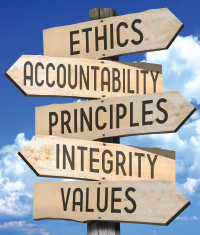Our patients are more than just their disease—they are parents, spouses, and children, all struggling to achieve some level of happiness and health.


Our patients are more than just their disease—they are parents, spouses, and children, all struggling to achieve some level of happiness and health.

A look at principles, integrity, and professionalism in the 2020-2021 otolaryngology match.

The foundation for ethical care in Western medicine is the development of a patient-physician relationship that’s built on honesty and meaningful communication, leading to the capacity for shared decision-making.

One of the harshest ethical dilemmas during epidemics is whether it will, be necessary to consider imposing limits on the continued care of critically ill patients who aren’t expected to survive.

Even with ethical principles available to guide physicians in their approach to clinical ethical dilemmas, doing the right thing often requires bravery and personal risk.

A physician considering prescribing a certain medication that is not on the FDA-approved indications list must contemplate three aspects of that decision—legal/regulatory, clinical evidence, and ethics.

Are altruism, empathy, and compassionnstill valued virtues in “modern” medicine, or have patients come to expect something else in the provision of their healthcare by physicians.

We consider the four major elements of clinical judgment: knowledge, critical thinking and interpretation, decision-making and patient self-determination.
Saying no to a patient’s treatment requests is often complicated
